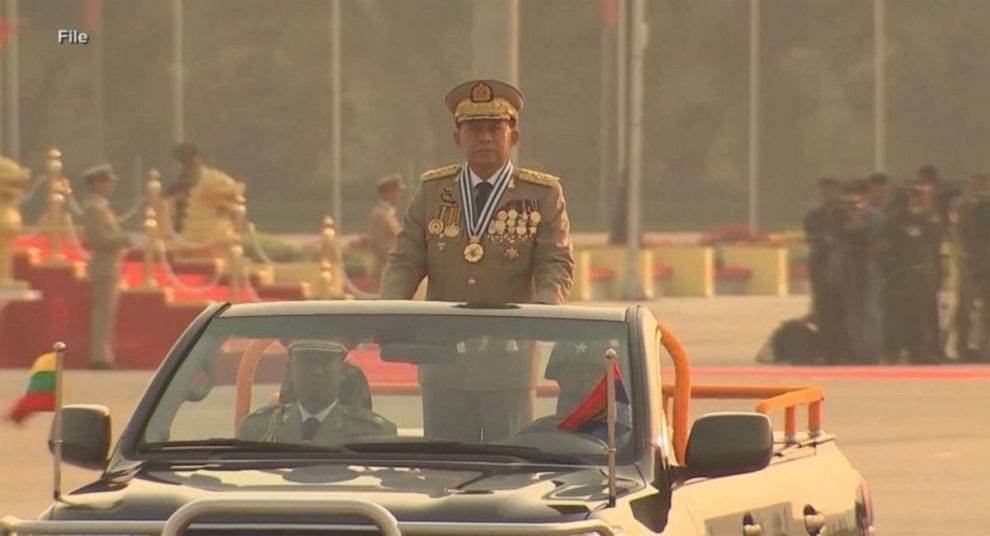This week, news of a coup in Myanmar shocked international society. Official statements by the UN and several Western governments condemning the attitude of the Burmese military in overthrowing Aung San Suu Kyi and its allies are sharing space in public opinion with neutral statements that only call for the country’s stabilization, as was the Chinese position. Between having been dangerous to democratic institutions or merely changing the government by armed means, there is a range of different possibilities, making the case worthy of a technical and impartial analysis.
Washington loses its space in Beijing’s zone of influence.
The events of February 1, 2021 can be summarized as follows: Burmese State Adviser Aung San Suu Kyi, who heads the country’s government, and President Win Myint were detained by the Burmese army, under extremely obscure circumstances. Previously, tensions between the government and the military of this Asian country had been growing, generating fears of a coup in some sectors of Burmese society – however, such a quick and incisive attitude on the part of the military was not expected by the population. The root of the conflict of interest between the government and the military was, in short, the last electoral process, which the Army classified as fraudulent and illegal. As a result of the crisis, the country’s political leader was arrested, in what was considered a coup by the media and some foreign governments. Some regional ministers were also captured by the military, as well as several other government’s allies. Citizens’ reports attest that military personnel are spread throughout the country’s streets, carrying out patrolling services and avoiding possible riots.
The military’s distrust of the electoral process is due to several factors. The election was held on November 8 and was the second general election since the end of the military government in 2011. Since the fall of the military, a scenario of tension of interests has been established among the civil political elite, interested in the preservation of institutions democratic, and the military elite, interested in conserving their power and continuing their national project. The country’s ruling party, the National League for Democracy (NLD), led by Aung San Suu Kyi, won by an immense advantage, getting 396 seats out of a total of 476. On the other hand, the Union, Solidarity and Development Party, supported by the Army, took the minimum number of seats in Parliament, which further aggravated the rivalry.
The speech of the Burmese military since the elections was unique in stating that there was large-scale electoral fraud. For this reason, the military had been demanding for months that the government postpone the summons to Parliament, which was scheduled for February 1 – which did not occur, resulting in the coup. Before that, representatives of the Burmese Government and Army met to resolve the conflict but were unable to reach an agreement of common interest.
Previously, in the midst of such fears of a possible anti-democratic coup, the country’s military has on several occasions denied the intention to do anything in this sense, categorically claiming that these accusations were unfounded and disseminated by a pro-government media. However, there are reports that the commander of the armed forces, Min Aung Hlaing, said on January 27 that the national constitution could be repealed if the laws were not properly implemented – and this in fact happened.
However, it would be naive to believe that this event has no sign of external interference. In fact, a polarized political scenario has been outlined in Myanmar for years. Historically, the military has sympathy with China and Democrats sympathize with the West. Last month, Min Aung Hlaing and the head of Chinese diplomacy, Wang Li, met to discuss the Burmese political crisis and the chief of the armed forces alleged electoral fraud in the November process.
Chinese interest in Myanmar is clear. Maintaining an allied government in a border country is extremely strategic for Beijing and avoids a greater degree of Western influence in its continental zone. Bilateral trade between China and Myanmar has always been intense, but it has declined with the rise of the recently overthrown government, whose pro-Western positions have weakened ties with Beijing. Also, due to the latest events of ethnic conflict and persecution of the majority Buddhist military against Islamic minorities, the West has imposed several sanctions on the Burmese military, which have been consented by the civilian government. It does not seem to be by chance that the Chinese reaction to the coup was limited to a request for both sides to resolve their differences, without any condemnation against the military.
If China’s influence is real, the military coup in Myanmar can be interpreted as a test and a warning against Washington. Losing space on the Chinese border is unpleasant for American interests but, in the midst of a strong internal crisis, will Biden really react strongly or will his response be limited to mere notes of repudiation?
Contributed by Lucas Leiroz, a research fellow in international law at the Federal University of Rio de Janeiro.
